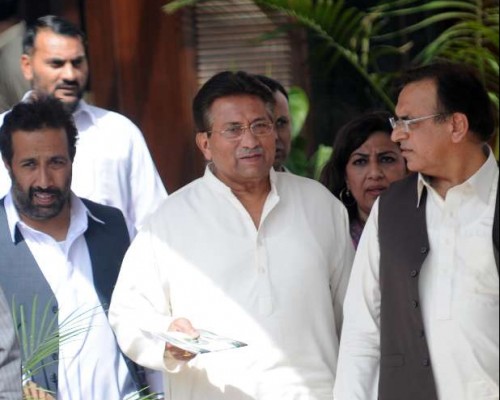
An anti-terrorism court (ATC) in Pakistan’s Quetta city indicted former president Pervez Musharraf in a case related to the murder of Balochistan leader Nawab Akbar Khan Bugti in 2006, Dawn reported.
Despite the ATC’s repeated orders, the former military dictator did not appear in the court Wednesday.
In the court, Musharraf’s counsel Zeeshan Cheema submitted a medical report and requested an exemption from appearance for the former president. Counsel said Musharraf was undergoing back pain and therefore he would be unable to appear in the court.
Turning down the request, the court ordered the indictment of Musharraf, former interior minister Aftab Ahmed Khan Sherpao and former home minister of Balochistan Mir Shoaib Nowsherwani in the Baloch leader’s murder.
The court, however, said Musharraf would be granted exemption from appearance in the court only after the medical board would apprise it about the former army chief’s health.
The hearing of the case was subsequently adjourned to Feb 4.
Bugti was killed in August 2006 in an explosion in a cave where he had taken refuge during a military crackdown ordered by Musharraf, who was then the country’s president and army chief.